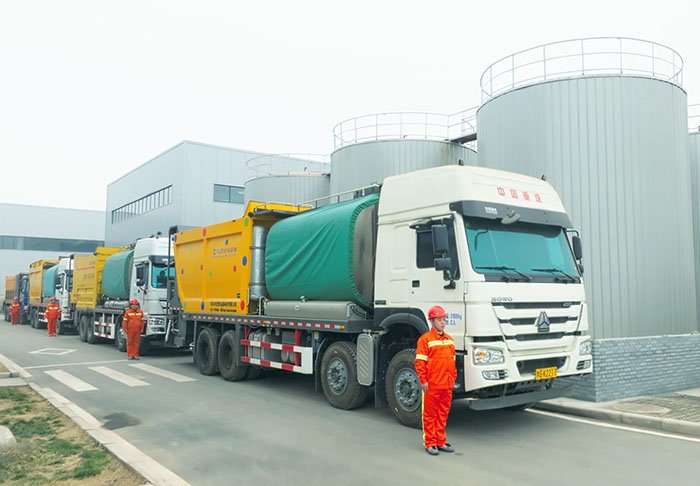The production of SBS modified emulsified asphalt is achieved by mixing and emulsifying SBS modified asphalt with an emulsifier solution under specific conditions, which combines the high elasticity of SBS polymer and the convenience of ambient temperature construction of emulsified asphalt. The following are its core production methods and key control points:
1、 Production process
1. Raw material preparation
SBS modified asphalt: Basic asphalt (such as 70 # road petroleum asphalt) is heated to 160-180 ℃, and 3% -5% SBS polymer (star or linear) is added. SBS is uniformly dispersed through high-speed shearing (3000-5000 rpm), and after swelling, homogeneous modified asphalt is formed.
Key indicators: softening point ≥ 60 ℃, ductility (5 ℃) ≥ 30 cm.
Emulsifier aqueous solution: Dissolve emulsifiers (such as cationic quaternary ammonium salts) in hot water at 60-70 ℃ in a ratio of 1% to 3%, adjust the pH to 2-3 (hydrochloric acid adjustment), and add stabilizers (such as CaCl ₂).
2. Emulsification process
Equipment: Colloid mill (gap ≤ 0.1 mm, speed ≥ 3000 rpm).
Temperature control: SBS modified asphalt: 160-170 ℃ (maintaining fluidity);
Emulsifier aqueous solution: 60-70 ℃ (avoid high temperature evaporation of water).
Mixing ratio: Asphalt: Water solution ≈ 60:40~50:50 (mass ratio).
Emulsification process: inject hot asphalt and emulsifier aqueous solution into the colloid mill synchronously, and make asphalt disperse into tiny particles (particle size 1~5 μ m) by high-speed shearing to form a stable oil in water lotion.
3. Cooling and Storage
The outlet lotion is rapidly cooled to below 50 ℃ to avoid demulsification; The storage tank is continuously stirred (to prevent sedimentation), maintained at a temperature of 20-50 ℃, and has a shelf life of ≤ 3 months.
2、 Key technical points
1. Stability of SBS modified asphalt
Stabilizers (such as sulfur or crosslinking agents) need to be added to prevent SBS from separating from asphalt.
2. Selection of emulsifier types
Cationic type (such as OT, AKZ): suitable for acidic aggregates (such as granite), with fast demulsification speed;
Non ionic type (such as OP series): acid and alkali resistant, but with weak adhesion.
3. Demystification control
By adjusting the charge characteristics of the emulsifier, pH value, and humidity of the construction environment, the demulsification time is controlled (usually 15-60 minutes).


